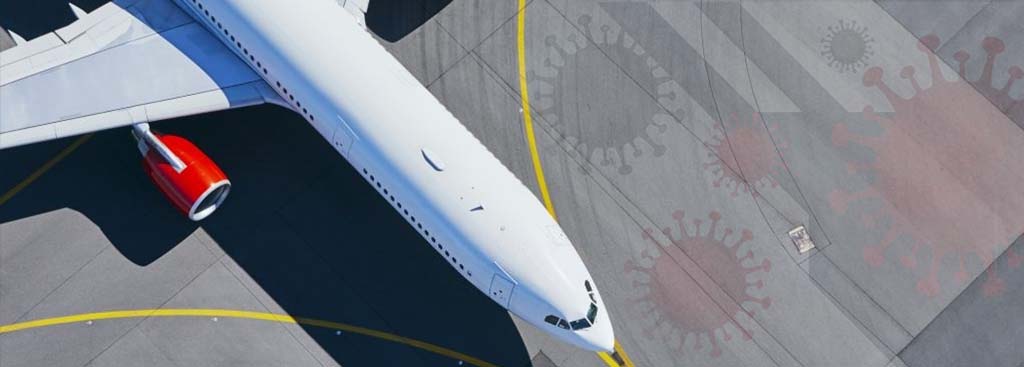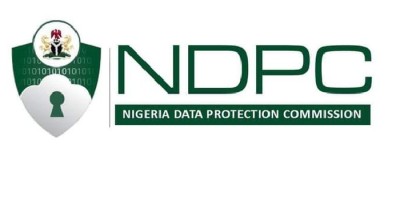- Home
- Grey Matter
- Overview Of Recent Operational Guidelines On Flight Operations During And Post Covid-19 Restrictions
Overview Of Recent Operational Guidelines On Flight Operations During And Post Covid-19 Restrictions
Posted on Thu 14 May 2020
- Download Resource
INTRODUCTION
On May 6, 2020, the Federal Government of Nigeria (“FGN”) extended the closure of Nigeria’s airspace and ban on all commercial flight operations[1] for an additional four (4) week period (“Closure Period”). This is yet another intervention by the FGN, among a series of other measures implemented in the Nigerian aviation industry since the arrival of the index case of COVID-19 through an international flight into Nigeria.[2] Despite the severe financial strain the FGN’s actions have had on airline operators in Nigeria[3], there appears to be a general acknowledgment that the said measures are necessary in order to prevent (or at least mitigate) further spread of the virus. In any case, many local airlines had experienced significant reduction in passenger traffic since the outbreak of the pandemic, forcing several airlines to gradually suspend flight operations, even before the government mandated the closure of Nigeria’s airspace.
This briefing note highlights some of the recent regulatory measures and their impact on the operations of airlines in Nigeria.
OPERATIONAL GUIDELINES ISSUED BY THE NCAA
The NCAA issued certain guidelines affecting cargo operations and essential flights, which are exempted from the restrictions during the Closure Period. In addition, guidelines on operations of airlines after the Closure Period have been issued in order to ensure that airlines are well-prepared for full resumption of operations when governmental restrictions have been fully lifted. These Guidelines are highlighted below.
a. Guidelines on Essential Flights and Operation and Handling of Cargo
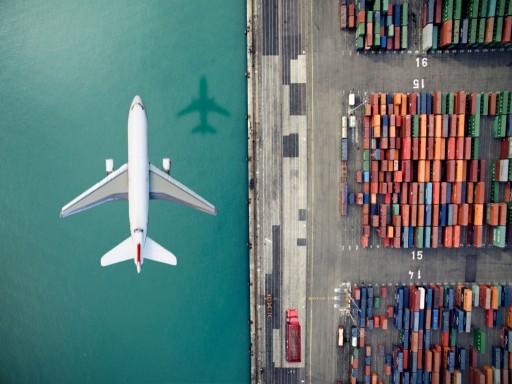
In recognition of the need to permit the operation of essential flights, as well as cargo operations (which typically involve limited human contact), the NCAA issued certain protocols for the operations of these flights.[4] In order to avoid ambiguity on what constitutes “essential flights”, the NCAA specifically stipulated that same are limited to the following:
- Aircraft in state of emergency;
- Over flights;
- Operations related to humanitarian aid, medical and relief flights;
- Alternate aerodromes identified in the flight plan (including those being used for extended diversion time operations);
- Technical stop where passengers do not disembark;
- Cargo flights; and
- Other safety-related operations.
All operators undertaking approved flights to destinations with over 1,000 confirmed cases of COVID-19 are required to have a reinforced flight crew (that is, two (2) sets of flight crew for immediate return of the aircraft). The crew members are required to wear face masks and hand gloves during the flight. Further, the flight crew must remain on board the aircraft at all times and all ground staff must wear appropriate personal protective equipment (“PPE”) while servicing the aircraft (which entails only refueling of the aircraft, while provision of other services such as catering, trash disposal, water etc. are currently restricted).
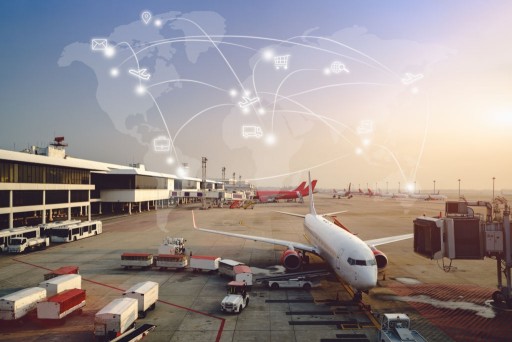
Applications for approval of essential flights must be made directly to the Minister of Aviation (except for aircraft in state of emergency) while requests for diplomatic flights must be routed through the Ministry of Foreign Affairs to the Ministry of Aviation. Further, requests for medical evacuation flights must include a verifiable stamped and signed medical report from a Teaching Hospital, while requests for cargo flights must include a packing list of cargo contents. In addition, all airway bills, cargo manifestos, clients’ services information, etc., for essential cargo flights may be submitted electronically to the NCAA.
Unfortunately, many Nigerian airlines have been unable to take advantage of the limited opportunity to operate essential flights and only few airlines have successfully undertaken evacuation flights or conveyance of cargo. Thus, the NCAA directed airline operators to ensure that all aircraft suspended from flight operations are kept in airworthy condition by performing all the necessary maintenance required.[5] However, operators engaged in non-scheduled flights undertaken by helicopters and small aircraft, which support the upstream operations in the oil and gas industry, have witnessed limited disruptions, as such flights have been granted authorizations as essential flights.
b. Directives on regulatory interface during the Closure Period
The NCAA has effectively scaled down its operations during the Closure Period, ostensibly due to the rather limited operations of airline operators in respect of which it exercises its regulatory oversight. Specifically, all inspections and audits have been suspended till June 30, 2020. Further, no new applications for aircraft registration and other requisite certifications are being processed by the Agency. However, existing operators who intend to renew their approval certificates may submit their applications and proof of payments electronically, whereupon a desktop evaluation will be conducted by the NCAA.
While no new aviation personnel licenses are being processed, the validity periods of the licenses of such personnel[6], which expired from April 1, 2020, have been extended for a further three (3) months period.
The guidance provided by the NCAA regarding the status of licenses and certificates clarifies the uncertainty regarding the status of expired licenses and certificates and the application process for renewal of these certificates. It is particularly commendable that the NCAA has adopted an electronic process for submission and evaluation of applications which relieves some of the hardship that operators and individual license holders are bound to face during this period.
c. Restart Plan Guidelines
Following the FGN’s gradual easing of lockdown-restrictions, the NCAA has confirmed its readiness to commence the process for ensuring safe, secure and efficient restart of flight operations when the Nigerian airspace is fully reopened. Thus, all operators are required to develop restart plans in accordance with specific guidelines and protocols contained in advisory circulars issued to airline operators. Holders of air operators’ certificates are specifically required to notify the NCAA of their Post-COVID-19 Restart Plan (“Restart Plan”) for general assessment by the Authority. Upon a satisfactory assessment of the Restart Plan, the NCAA will grant approval for such operators to resume operations. Some of the protocols, which this plan is expected to contain, include:
- Use of Crew COVID-19 status card for all cabin crew;
- Use of declaration/self-reporting cards for passengers of regional and international flights;
- Weekly disinfection of aircraft;
- Increased use of online check-in and luggage drop off to reduce congestion at check-in counters;
- Installation of floor mounted automatic sanitizer dispenser at the door of the aircraft;
- Observance of social distancing rules during boarding and sitting of passengers;
- Conduct of secondary temperature screening for passengers before boarding;
- Modification of safety announcements to include COVID-19 safety precautions;
- Prohibition of serving of refreshments on flights, provided that pre-packed snacks/meals can be served on flights of a duration of 2 hours or more;
- Use of face masks for the entire duration of flights; and
- Use of PPE by all cabin crew members during flights.
Impact on Airline Operators
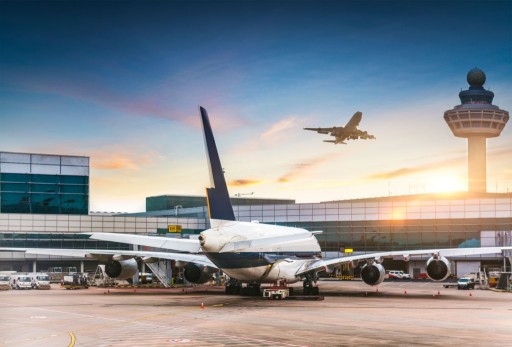
Compliance with the foregoing directives, particularly those in relation to operations post COVID-19 restrictions, will likely attract additional costs for airline operators in Nigeria. Indeed, due to the losses suffered as a result of the pandemic, there have been concerns that many operators may be unable to fund the routine maintenance checks on their aircraft to enable them recommence operations when the restrictions are lifted.
It is instructive that while a number of countries have communicated specific intervention funds for airline operators, the focus in Nigeria appears to be regulation of flight operations during and post the COVID-19 restrictions. Indeed, the aviation industry in Nigeria was already experiencing a lot of financial strain prior to the outbreak of the pandemic, evidenced by the acquisition of two of the major domestic airlines by the Asset Management Corporation of Nigeria (“AMCON”) due to their inability to meet their financial obligations. While we note that the aviation sector is included in the list of sectors to benefit from the N50billion Targeted Credit Facility introduced by the Central Bank of Nigeria (“CBN”), to support MSMEs particularly affected by the pandemic, given the large number of MSMEs in various sectors, it is unlikely that airlines will be able to receive any significant funding from this targeted intervention.
It is therefore not surprising, that the International Air Transport Association (“IATA”) called on the FGN to provide aviation-specific financial relief measures, in order to address the severe impact of the COVID-19 crisis on the air transport sector. Whereas IATA noted the general relief measures put in place by the government in support of sectors of the Nigerian economy badly affected by COVID-19, it called on the FGN to also consider implementation of relief measures that are specially designed to address challenges in the aviation sector. Such reliefs, as recommended by IATA, include direct financial support to passenger and cargo carriers, loans, guarantees and support for the corporate bond market by the government or the CBN, tax relief including rebates on payroll taxes paid to date in 2020 and/or an extension of payment terms for the rest of the year, financial relief on airport and air traffic control charges and taxes, reduction, waiver or deferral of government-imposed taxes and fees, as well as assurances of availability of foreign exchange.
Notwithstanding the declining revenues and competing expenditure priorities, the Nigerian government may need to seriously consider these recommendations due to the crucial nature of the aviation sector to the economy.
1 However, the Nigerian Civil Aviation Authority (“NCAA”) has continued to permit essential flights, including those involving the evacuation of foreign nationals out of Nigeria, as well as repatriation of Nigerians from foreign countries.
2 Nigeria confirmed its first case of COVID-19 on February 27, 2020 after an Italian citizen arrived in Nigeria from Italy via Turkey.
3 The Airline Operators of Nigeria estimates that over 120 aircraft are grounded in various airports in the country and domestic airlines in Nigeria have lost circa N360,000,000 as a result of the pandemic, as at April 2020.
4 These protocols were issued further to a letter to all Nigerian operators and all foreign airlines flying into Nigeria and can be accessed on https://ncaa.gov.ng/media/ikuld41j/all-operators-letter-2.pdf
5 This directive was further to NCAA Circular No. NCAA/DAWS/AD.1104/AOL 078/Vol.1, dated March 26, 2020.
6 These personnel include Pilots, Air Traffic Controllers, Cabin Crew, Aircraft Maintenance Engineers, Flight Dispatchers, Aeronautical Station Operators, Air Traffic Safety Electronics Personnel and Designated Examiners.

